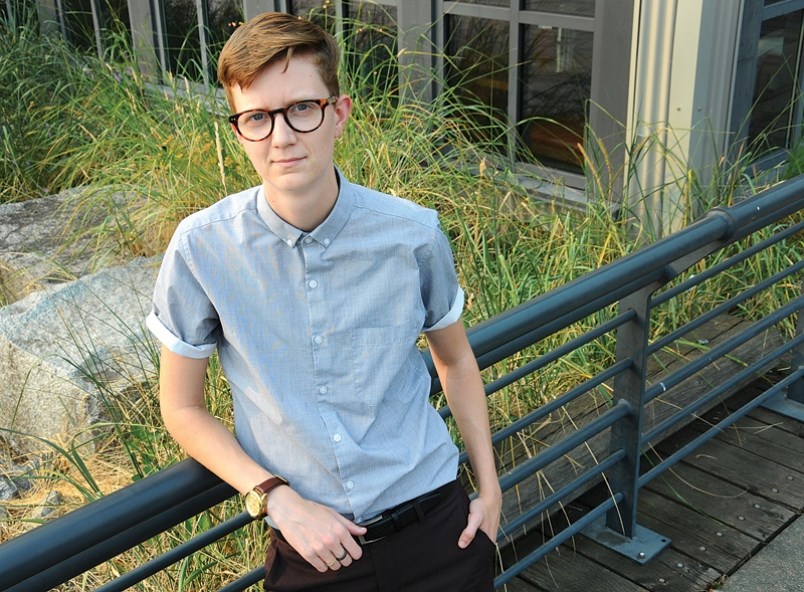For one North Vancouver law student, Friday’s Supreme Court ruling against Trinity Western University’s proposed law school was a personal milestone and a national landmark.
LGBTQ advocate Grace McDonell was part of a chorus who objected to TWU’s law school, given the university’s covenant forbidding students from having sex outside: “the sacredness of marriage between a man and a woman.”
“I was disappointed to realize that I might be entering a profession with colleagues who have signed a contract, basically saying that my expression of love is vile,” said McDonell, a Handsworth Secondary grad and Thompson Rivers University student.
McDonell spearheaded the OutLaws, a coalition of LGBTQ law students who were granted intervenor status in the case.
While the Law Society of B.C. voted not to approve TWU’s law school in 2014, the B.C. Court of Appeal ruled in favour of TWU in 2016, deciding the religious community was a minority group that needed protection.
The Supreme Court of Canada overturned that decision Friday, as a majority of judges called the requirement to restrict your sexual identity according to someone else’s religious beliefs: “degrading and disrespectful.”
McDonell described her reaction to the 7-2 ruling as: “complete elation.”
“I think I only really mentally prepared for a loss,” she said. “To have this win means everything to myself and to my family and to the rest of our team.”
McDonell said she was inundated with messages of support Friday morning from fellow law students and friends on the small role she played in the case.
“It’s a huge day for LGBTQ individuals as well as Canada,” she said. “We used our voice and I think that’s exactly what I want to believe the law is for.”
In a dissenting opinion, two judges dubbed the Law Society of B.C.’s 2014 decision as “profound interference” on the religious freedom of the TWU community. The school’s covenant “ensures the vitality” of the religious community, according to Supreme Court Justices Suzanne Côté and Russell Brown.
“No one group is singled out, and many others (notably unmarried heterosexual persons) would be bound by it,” they wrote.
That opinion was rebuked by Judge Malcolm Rowe, who argued the covenant enforces its code of conduct on members of “other religions and non-believers.”
“Given that the coercion of non-believers is not protected by the (Canadian Charter of Rights and Freedom), TWU’s claim falls outside the scope of freedom of religion . . .” Rowe wrote.
The school’s covenant reminds students that: “Ensuring that the integrity of the TWU community is upheld may at times involve taking steps to hold one another accountable.”
The decision is a momentous one for Canada, according to McDonell, who lauded the ruling for protecting LGBTQ individuals and enhancing the diversity of the legal profession.
“That means more to me than any type of accolade or accomplishment is just knowing that you have that ability to fight for something.”
While she said she may pop a bottle of champagne Friday night, McDonell said she plans to turn her attention next to the issue of transgender rights as well as restrictions around gay men donating blood.
“We’ve picked up a lot of steam and I think we’re going to continue,” she said.



